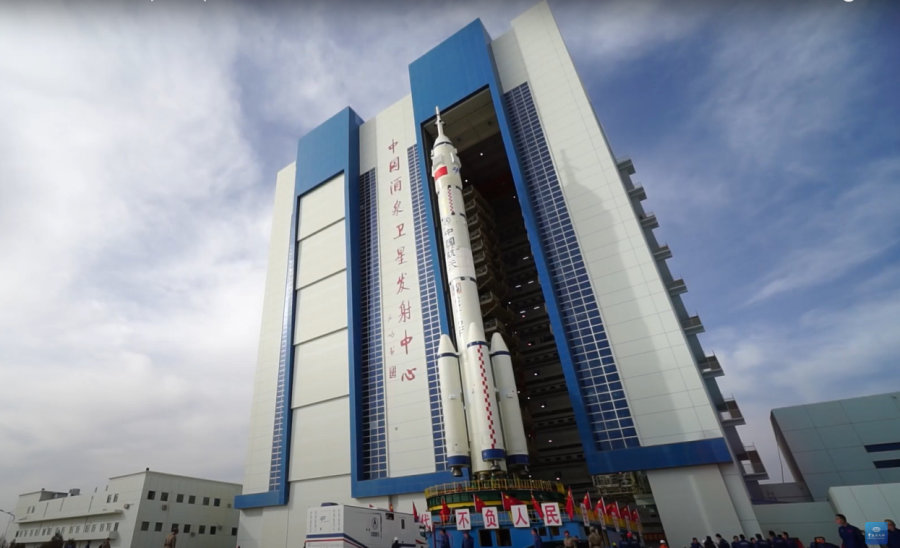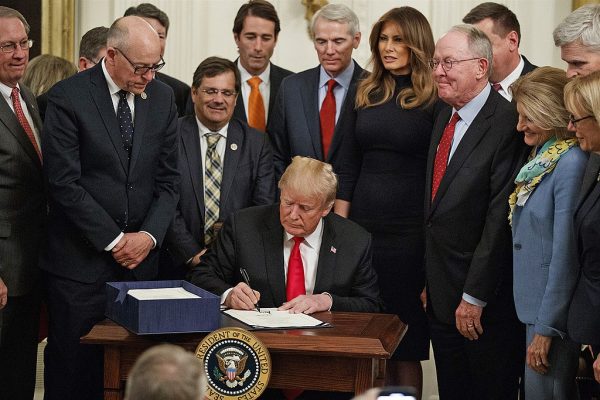How China Will Change the Future of Space Exploration
February 4, 2023
Over the past few decades, China’s space program, created in the late 1950s, has seen vast and exponential growth accompanied by notable technological and structural advancements. In late November, China launched the Shenzhou-15 rocket, which sent a team to reside in the newly completed Tiangong space station, impressively built in under two years and able to conduct revolutionary tests and support human life in low orbit. This launch opens the door to a world of new possibilities in astronomical research, but it also leads competing programs and nations to worry about what repercussions could come from it.
China’s space program and technologies have advanced quite rapidly and reached many ambitious achievements; however, due to factors including the nature of China’s political systems as well as the dynamics between civilian and military projects, this advancement could lead to many side effects detrimental to general space exploration.
First, China is a communist state under autocratic rule that has been seen censoring media and news coverage nationally and internationally as well as manipulating events such as elections. Such censorship of crucial information is apparent throughout China’s space program, especially in Beijing’s lack of transparency regarding the significance of its aerospace capabilities in its military.
The obscurity surrounding China’s actions and what it seeks to achieve is already worrisome to foreign competitors, but China’s preservation of Mao Zedong’s wish to “create an atomic bomb, an intercontinental ballistic missile to carry the bomb and a satellite from which to view the world below” casts even more uncertainty on the future of the initiative.
As China nears its goal to overtake the U.S. and NASA, more worries related to China’s political structure have risen, including the possible censorship of research and data, the monopolization of the space between the Earth and the Moon, as well as the suspension of exploration for any competing nations. These concerns are based on China’s past efforts to become the sole leader in other industries, manufacturing and production being examples of such domains. Furthermore, the centralization of control that rests with the head of China’s government allows for rasher and riskier decisions over the actions of the authoritarian regime.
The connection between China’s scientific achievements and military capacities is another factor that could have consequences for existing aerospace projects. Although Beijing has assured onlookers that any milestones and discoveries reached will be implemented peacefully, China’s plan to fully merge military and civil undertakings through Military-Civil Fusion (MCF) has led to doubts concerning its sincerity.
China’s main reason for implementing MCF is to create the most contemporary and sophisticated military by exploiting the dual-use of technologies such as A.I., semiconductors, quantum computing, and, evidently, aerospace technology. China has been integrating MCF since the inception of the space program due to its ties to the military efforts to send intercontinental missiles, which is why China has been repurposing the technology developed for civilian projects to apply to its military.
Additionally, through the advancement of its exploratory projects, China has built “out a vast array of ground- and space-based anti-satellite weapons, including missiles.” Another illustration of the military-civil connection was seen at the launch site of the Shenzhou rocket, which took place at a military base involved in the ballistics programs.
The main concern of nations involved in the ISS or other aerospace programs is that the further China’s space programs advance, the further development will occur within the military. Therefore, China would have the ability to overpower other nations if there were to be any future conflicts regarding space programs.
Furthermore, China has used other countries’ research, work, technology, and intellectual property to develop its technologies. Foreign technology was often stolen without the knowledge or consent of the other parties, which is how China achieved as much in less than 20 years as the U.S. did in almost 40 years. Competing nations are therefore perturbed that China is appropriating their technologies to improve its civil systems and programs, which China could then use in its military as highly developed and dangerous armaments.
Should the rest of the world entrust the future of research and exploration in the space domain to an authoritarian nation, especially one with multiple demonstrations of unethical practices exercised with the intent to reach global militaristic and scientific leadership? China’s rapid and successful growth in space programs and exploration has and will undoubtedly continue to bring new ideas and capabilities into this world as it has done with the Tiangong space station.
Tiangong is already drastically better equipped for state-of-the-art missions and objectives as it is built with the most modern and intricate technologies developed worldwide, which certainly has the potential to be a force for good. However, given the systems ingrained in the programs and in China itself, it seems more probable that China will not follow through on its promises to collaborate with separate nations; rather, its leadership will hinder and restrict the rest of the world.




















